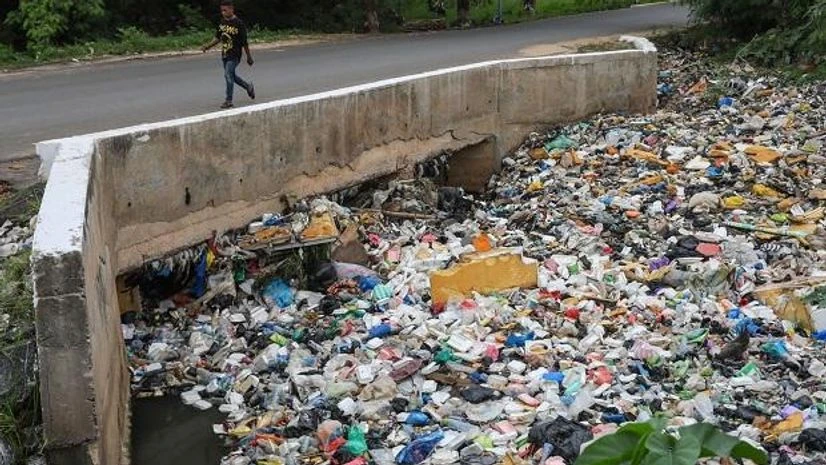On the occasion of World Environment Day, UN Secretary-General Antonio Guterres said that every year, over 400 million tonnes of plastic is produced worldwide, one-third of which is used just once, and less than 10 per cent of it is recycled.
This year the focus will be on the plastic pollution crisis which is being marked by the theme “Solution to plastic pollution.”
He said that nowadays, microplastics are finding their way into our food and water, and even the air we breathe.
The annual consumption of plastic has increased four times over the past 30 years. It is estimated that the global production of plastic will reach 1,231 MT (million tonnes) in 2060.
The Organisation for Economic Co-operation and Development (OECD)’s first Global Plastics Outlook report released last year noted that in 2019, 6.1 MT of plastic waste had leaked into aquatic environments and 1.7 MT had ended up in oceans. "There is now an estimated 30 MT plastic waste in seas and oceans", it said.
An estimated 19-23 MT of plastic ends up in lakes, rivers, and seas annually — approximately the weight of 2,200 Eiffel Towers.
It is estimated that each person on the planet consumes more than 50,000 plastic particles per year — and many more if inhalation is considered.
Out of the total plastic used globally, 60 per cent is used for packaging, 42 per cent for flexible packaging, 17 per cent for rigid packaging, 13 per cent for building and construction, and 9 per cent for agriculture, according to a report in Times of India (ToI).
The United Nations Environment Programme (UNEP) said that plastic plays a significant role in the climate crisis. “The production of plastic is one of the most energy-intensive manufacturing processes in the world. The material is made from fossil fuels such as crude oil, which are transformed via heat and other additives into a polymer. In 2019, plastics generated 1.8 billion metric tonnes of greenhouse gas emissions – 3.4 per cent of the global total.”
According to the ToI report, Ravi Agarwal, director of environmental NGO Toxics Link, said that plastics are not biodegradable as waste, which globally exceeds 350 MT a year and they persist for hundreds of years as waste.
He further said that plastics carry toxic chemicals that have been introduced to make them usable. Such chemicals can cause cancer and neurological disorders in humans.
India is gradually becoming a big user of plastic as consumption grew 20 times in the last 30 years. India consumed 0.9 MT in 1990, which increased to 18.45 MT in 2020.
In India, plastic waste generation was 1.59 million tonnes in 2015-16 and it increased to 3.47 million tonnes in 2019-20. Around 50 per cent of the plastic waste in India remains unutilised. There are 100 plastic waste recycling units in the organised sector and 10,000 units in the unorganised sector across the country. An estimated 170,000 tonnes of plastic waste is co-processed in cement kilns every year.
Experts say that the only way to deal with the plastic menace is better management on the principle of minimising what cannot be recycled and put a complete ban on multilayered plastic, according to the ToI report.
International negotiators are committed to drafting a treaty by November this year on ending plastic pollution.
The UN chief said that this is a promising step and can help curb the plastic menace across the globe.
He said that a new UNEP report shows that plastic pollution can be reduced by 80 per cent by 2040, but this can only be achieved if people across the globe act now to reuse and recycle plastic.
Guterres added that governments, companies, and stakeholders must scale up actions to solve this crisis.
On this World Environment Day, India — which already has a country-wide ban on single-use plastic — plans to tackle plastic pollution as a key component of its Mission LiFE (Lifestyle For Environment).
Speaking during the World Environment Day event, Narendra Modi said that India has a clear roadmap for environment protection and climate change.
"Our planet's challenges are well-known to all of us. The need of the hour is human-centric, collective efforts and robust actions that further sustainable development," he said.
He said that India's commitment to reach 40 per cent of installed electric capacity from non-fossil-fuel-based sources has been achieved, nine years ahead of schedule.

)
